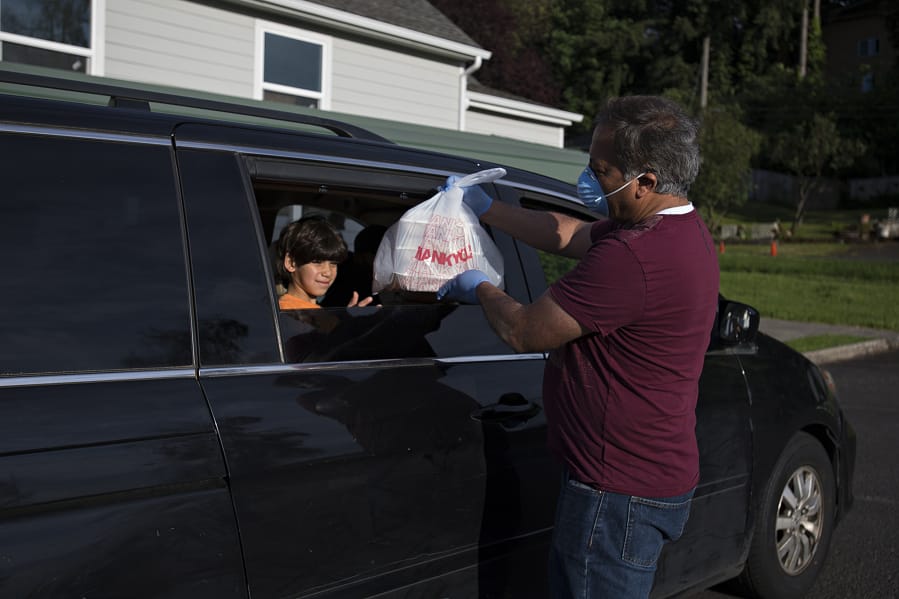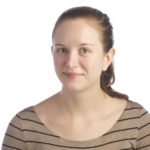As the sun inched toward the horizon Sunday evening, people drove to the Islamic Society of Southwest Washington to pick up to-go meals.
The mosque in Hazel Dell gave away 135 preboxed meals for iftar, the meal Muslims eat after sunset to break their daily Ramadan fast. Normally, during the month of Ramadan, Masjid al Noor or Mosque of Light would be packed with people on the weekends gathering for a community iftar.
But the mosque has been closed since mid-March due to COVID-19, the disease caused by the novel coronavirus.
“There’s not a single facet of life that’s not impacted,” said Ejaz Khan, vice president of the mosque.
Like other faith communities, the mosque is using video conferencing and streaming services to stay connected. Treasurer Ahmad Qayoumi said a hafiz, someone who’s memorized the whole Quran, will record themselves at home reciting a chapter, and people will watch it online.
Qayoumi said experiencing Ramadan during a pandemic has made him feel more grateful for what he has.
“You don’t appreciate things until you lose it,” he said.
He misses seeing and interacting with people at the mosque on Fridays for prayer.
Ilyas Mohammed, president at the mosque, said the pandemic has strengthened his faith.
While the mosque is an important aspect of Islam, the faith has tools and stipulations independent of any building; it’s more spiritual than physical, he said.
Board member David Hultsch accepted Islam while he was in the U.S. Air Force stationed in New Mexico, far away from a mosque.
“The mosque is really nice to have, but it’s not a requirement,” he said. “Faith isn’t confined to going to congregational prayer on one day.”
Hultsch noted that Muslims pray five times daily and often not inside a mosque. When in the Air Force, he would pray on the flight line or in his office when he had a desk job. Now that he works from home, he prays from home, too.
Being home all of the time can make the discipline of fasting from sunrise to sunset more difficult for some. Those with less to occupy them may be watching the clock, counting down the hours until iftar.
Sunday night’s meal was catered by Mediterranean restaurant Petra House. The mosque hasn’t had trouble finding local halal restaurants to cater the large group.
“They’re happy to cater because they don’t have other business,” Mohammed said.
Not all of the 400 to 500 people who went to Masjid al Noor took advantage of the to-go meals. Many people who came to pick up food were Syrian refugees and students from Washington State University Vancouver. Mohammed said each night averaged about 120 meals.
This year, the end of Ramadan falls either on Saturday or Sunday, depending on when the new moon appears, as Islam uses the lunar calendar.
Khan said he doesn’t remember any year in his life where there wasn’t a traditional Eid al-Fitr — a celebration like if Thanksgiving, New Year and Christmas were combined. Families get together to exchange gifts and new clothes, and eat food to mark the end of Ramadan.
Having it fall on a weekend, much less Memorial Day weekend, would’ve made this the ideal year to hold a big celebration.
“This would have been the best Eid we could have had here under normal circumstances,” Mohammed said.




